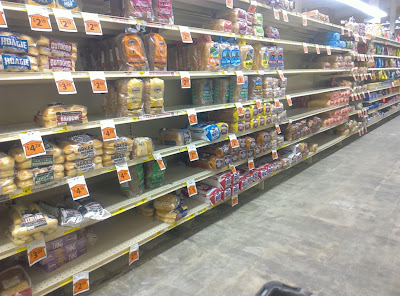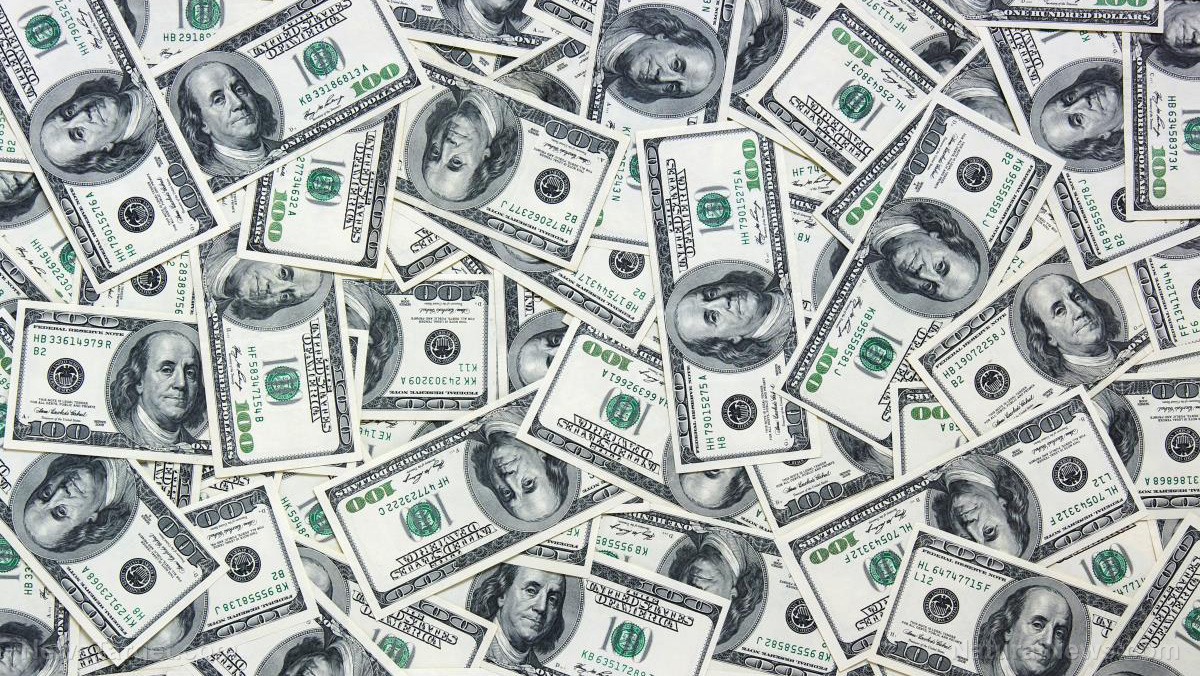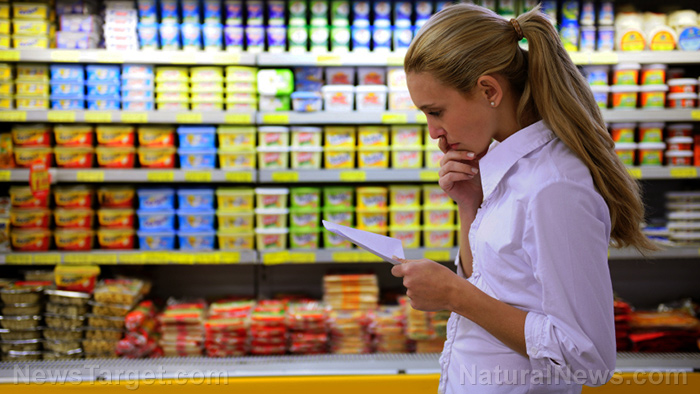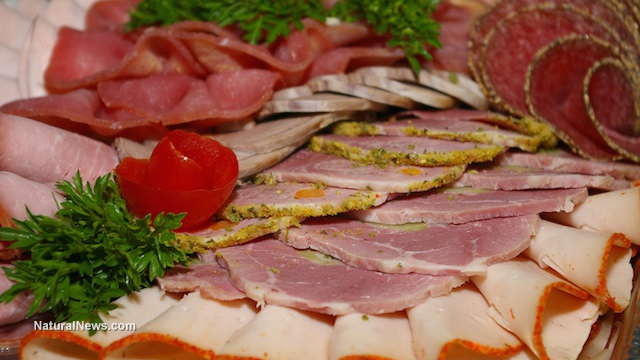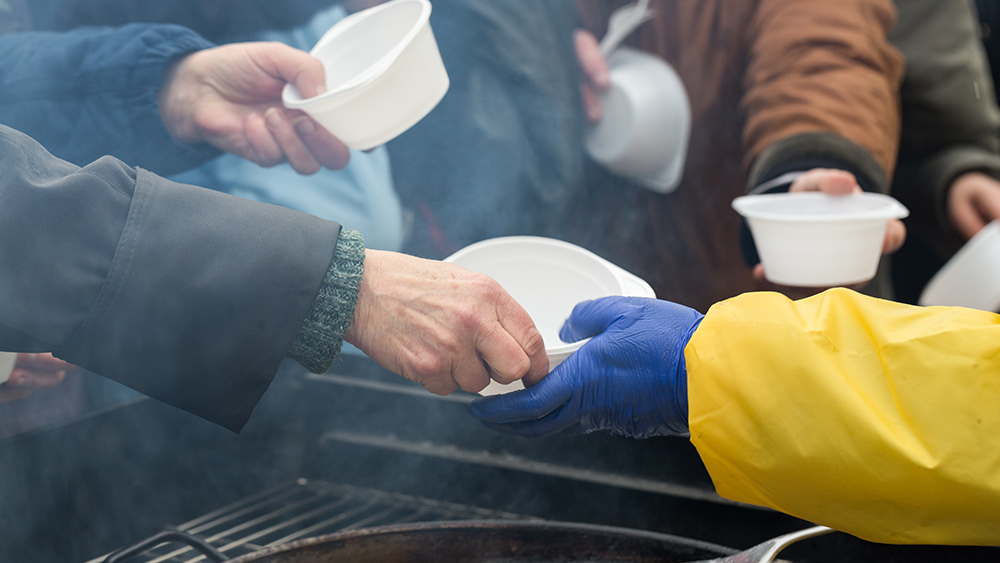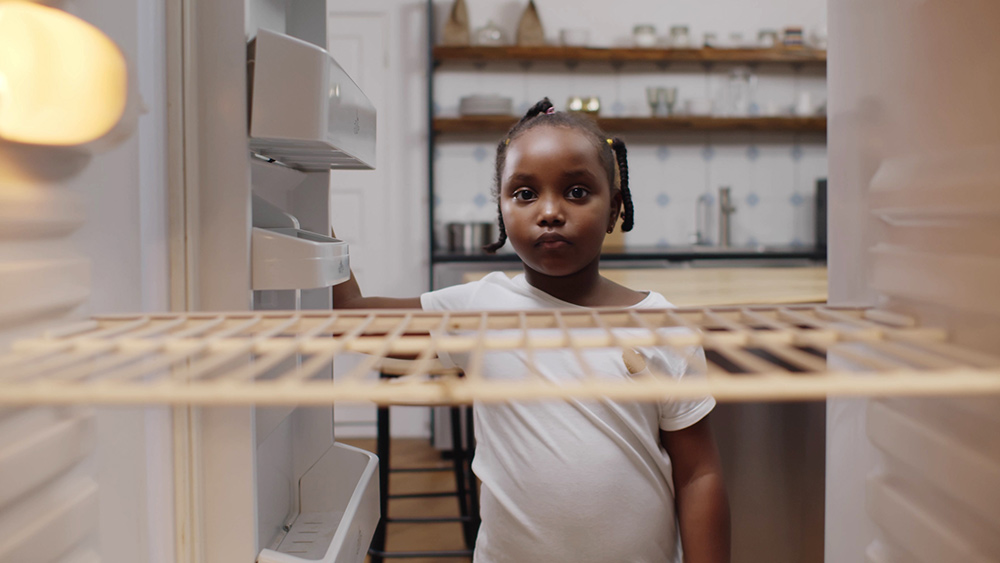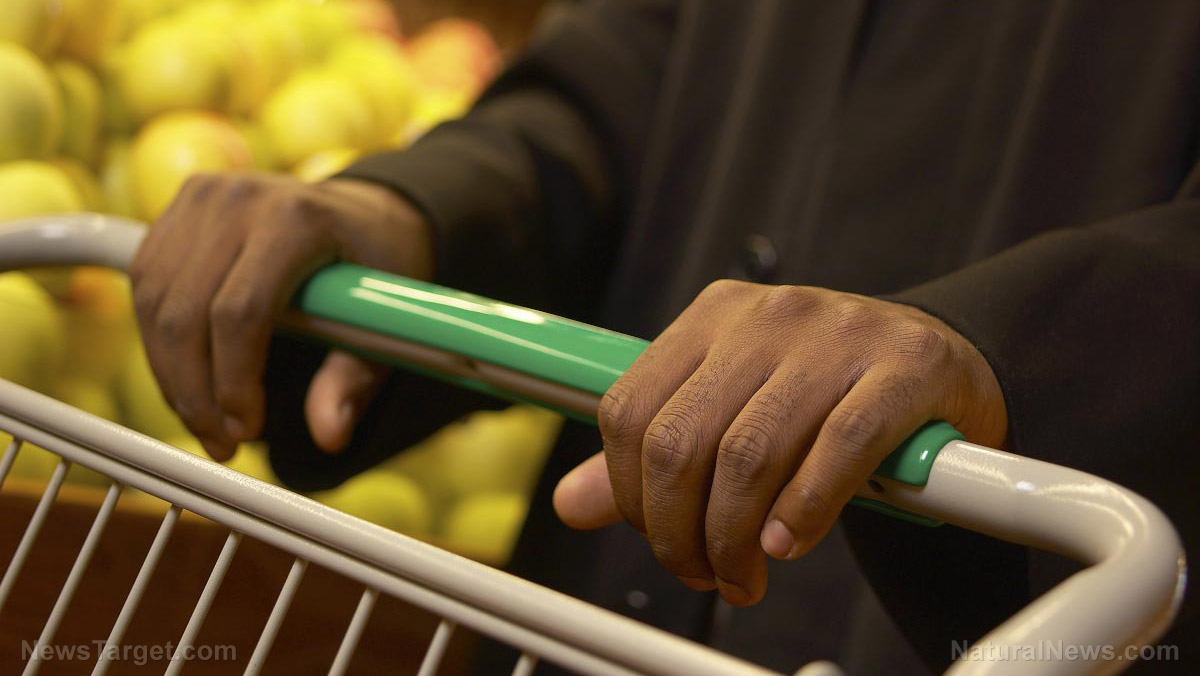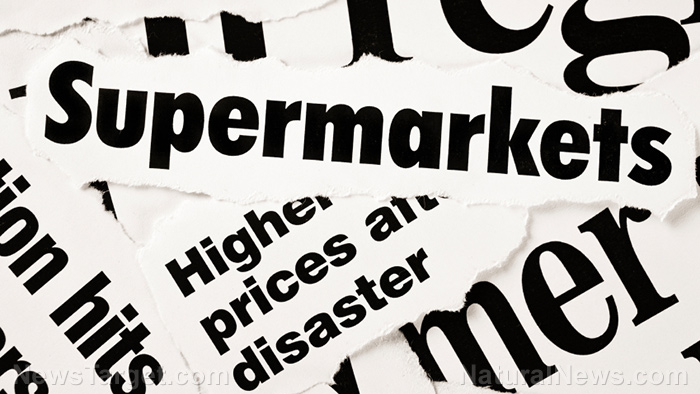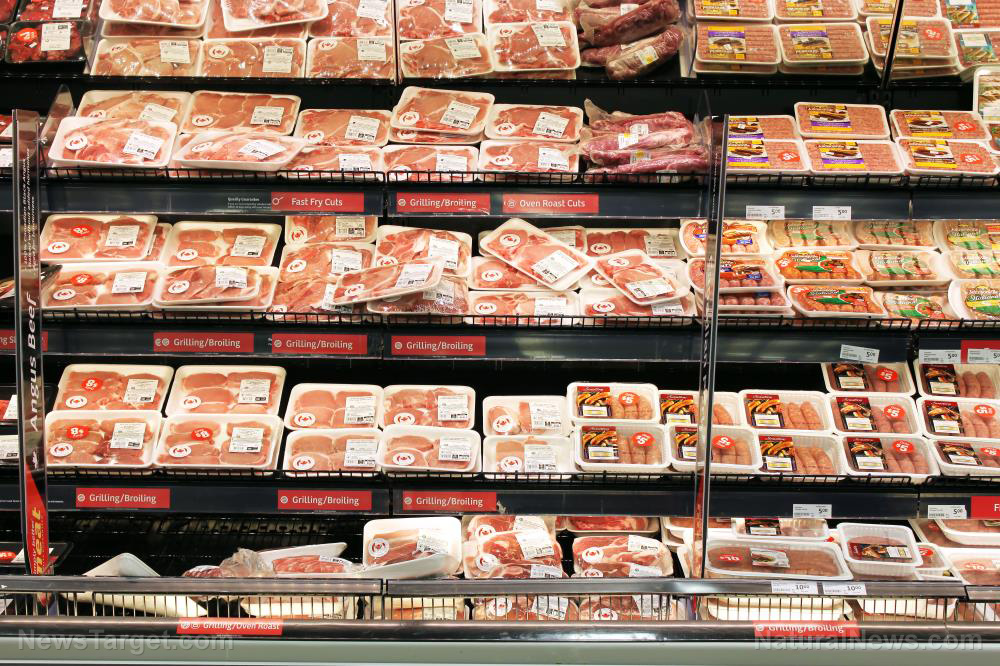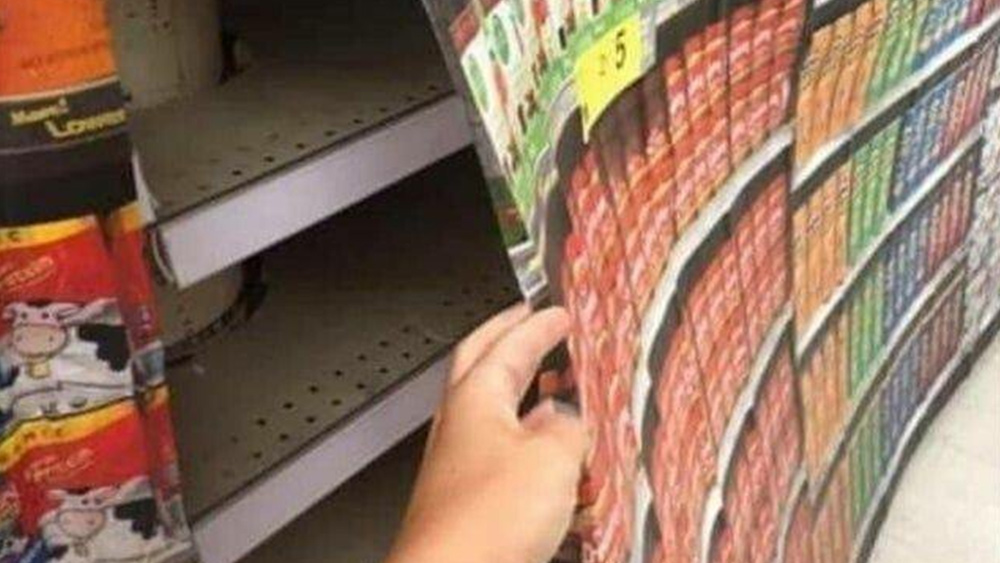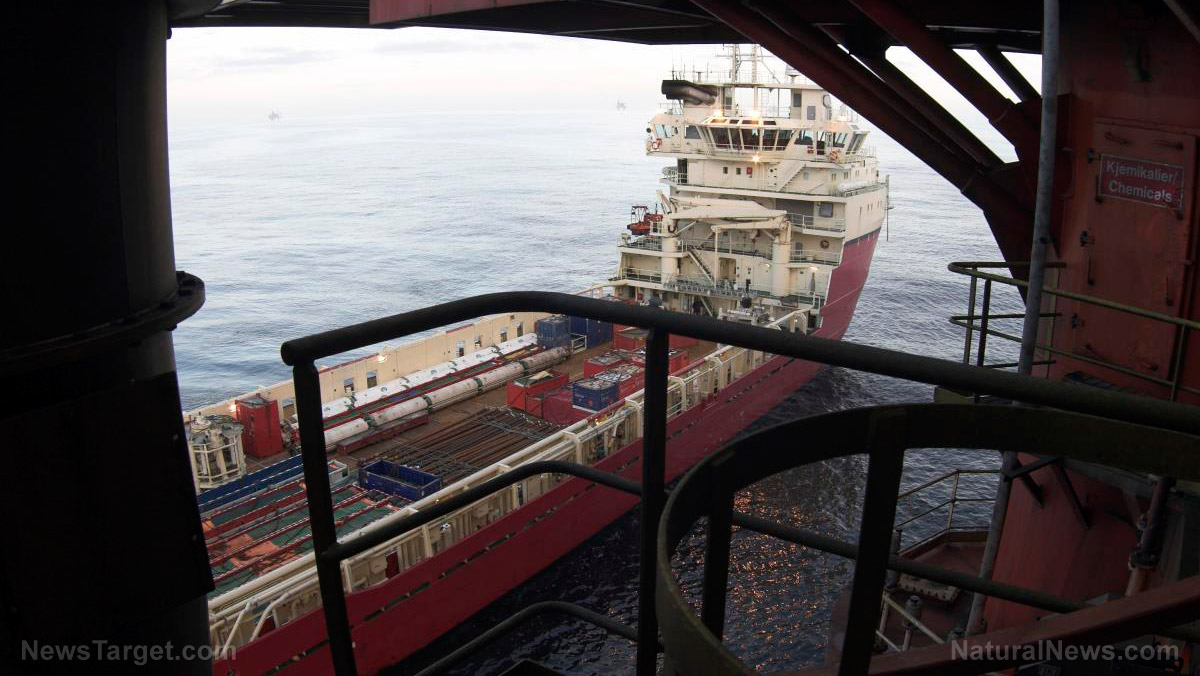Retailers now masking supply shortages by spreading out small number of products to hide empty shelves
10/26/2021 / By JD Heyes
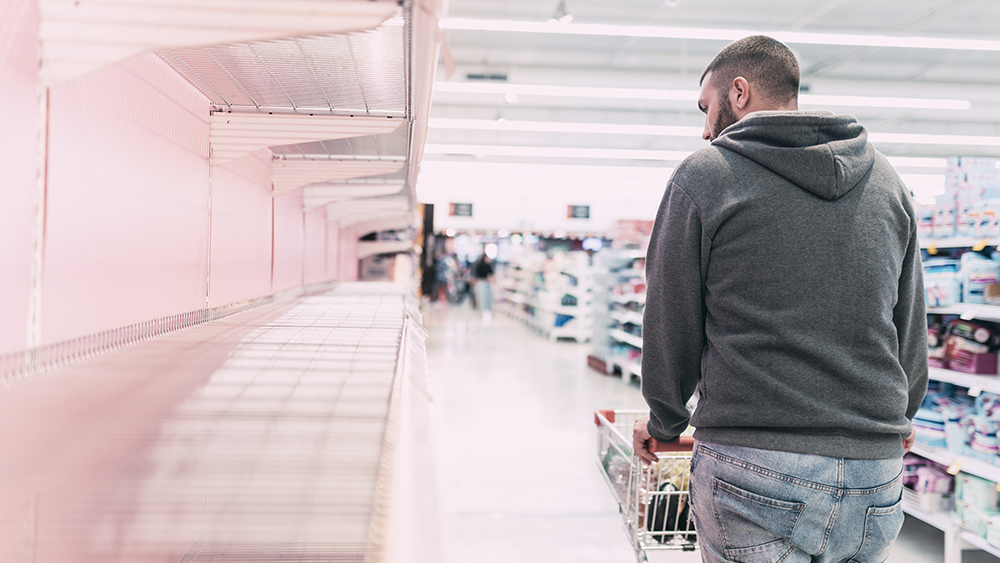
For weeks we’ve been told by the hapless Biden regime the supply chain collapse is nothing that the government cannot manage, while at the same time wholesalers and retailers were assuring Americans they’ve got this: Ordering earlier, and in greater quantities, allowed them to stock up and protect against shortages.
But at stores over the weekend, throughout the country, the collapse is becoming more and more apparent — and eerily similar to the kinds of shortages Americans experienced during the COVID-19 panic buying months. And prices are going up even more as well.
Photos posted online show retailers spreading out sparse numbers of products on shelves in a way that masks just how empty and bare they would otherwise be, all in a grand effort to fool the public and downplay just how serious the situation has become as it is obvious the regime is not up to the task of solving supply bottlenecks at U.S. ports and throughout the supply chain infrastructure.
We are at the edge of the precipice. The "pretending it's fine" aspect of the charade evokes a deep terror pic.twitter.com/sNvfHVyiwx
— Keque🚀 (@Keque_Mage) October 19, 2021
“Our Safeway appears to be trying to hide the supply shortage by using single lines of products to fill shelves. Leading to this,” Daily Wire writer Ashe Schow noted on Twitter.
Our Safeway appears to be trying to hide the supply shortage by using single lines of products to fill shelves. Leading to this: pic.twitter.com/CDXR67FYRu
— Ashe Short (@AsheSchow) October 21, 2021
“Ugggh. The milk situation is still not great, Bob. At the Walmart in” her city, writer Kelly Maher added.
Ugggh. The milk situation is still not great, Bob. At the Walmart in Thornton. pic.twitter.com/cFlkuNZjpZ
— Kelly Maher (@okmaher) October 20, 2021
The stocking technique is known as “fronting merchandise” and it is being used to make shelves appear much more ‘full’ than they really are. But the problem is, this technique is glaringly obvious and will have — pardon the pun — a very short shelf life because as the supply chain crisis worsens, there will be fewer and fewer items to spread out.
Some big box stores like Sam’s Club, for instance, are already running out of items like toilet paper and some foods. And while it’s also true there really isn’t a shortage of goods, the problem is getting those goods to stores.
And it’s understandable why the retailers are using the fronting technique; they are doing their part to prevent even more panic buying, though with social media today, it’s going to be impossible to keep secret the fact that supplies are dwindling around the country.
Then again, retailers are also part and parcel contributing to the supply chain crisis on their own; many of them, too, have been ‘panic buying’ in order to keep products in their stores, as Natural News reported this week:
The ongoing supply chain crisis has affected stocks of different products worldwide. Experts cite several contributing factors that worsen the issue such as port congestion and energy shortages. Now, another factor they mention – panic ordering by retailers – appears to make the crisis worse than it already is.
One expert in particular says that some retailers are placing their orders too early despite the limited supply. Jonathan Savoir, the CEO of supply chain technology company Quincus, makes this assertion during his appearance in the CNBC program “Squawk Box Asia.” He says: “Suddenly, retailers and manufacturers are over-ordering because of these supply chain issues. That’s just leading to essentially an even worse scenario.”
“Because everyone is over-ordering and overstocking, manufacturers can’t supply fast enough [and] supply chains can’t keep up fast enough,” Savoir said, noting that this situation will lead to more orders going unfilled and thus make it more difficult to actually measure supply-and-demand and forecast when the situation will end.
All of which is coming as cargo ship backlogs at major U.S. ports continue to grow as well.
Sources include:
Tagged Under: Biden regime, bubble, Collapse, conspiracy, container ships, deception, empty shelves, food collapse, food supply, grocery, Inflation, products, retailers, store shelves, supply chain, supply crunch
RECENT NEWS & ARTICLES
COPYRIGHT © 2017 GROCERY NEWS





